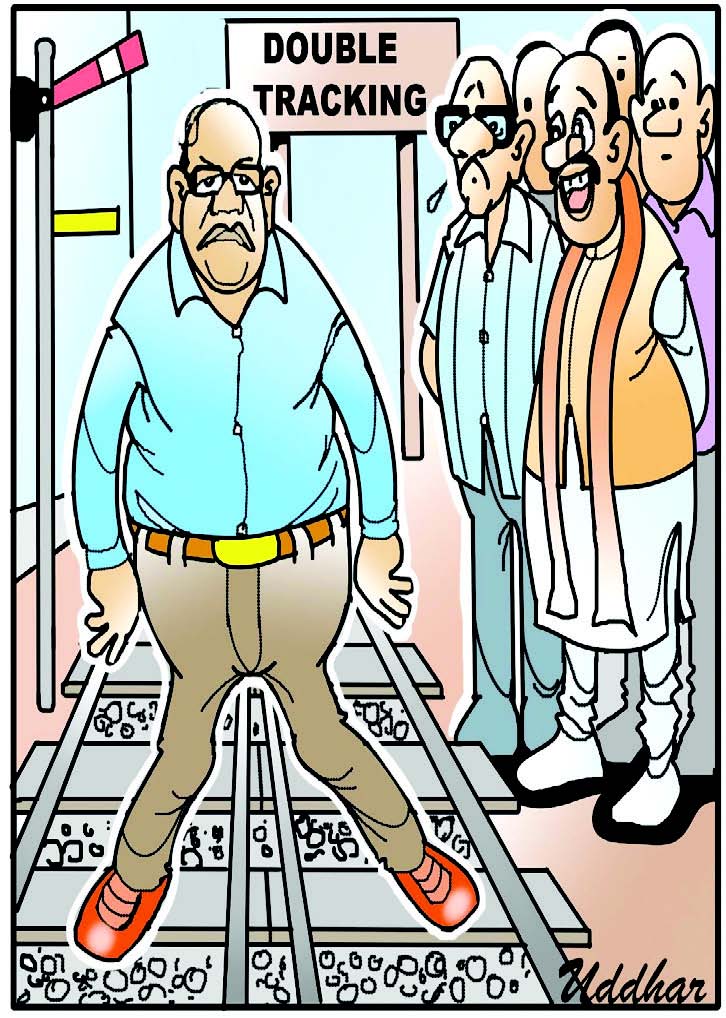
Sunil Dias
Everybody wants to be a great boss. In most organisations bosses think that they’re great. Ask them how they know that they are great leaders, and you’ll get many reasons. Of how employees have told them that they love working for their organisation. Of employees who gave up better opportunities to work for their company. Of how they’ve helped their employees much more than other employers. And that they haven’t received negative feedback. Despite encouraging open communication.
Remember the story of the emperor’s new clothes? Where nobody in the emperor’s court told him that the tailors were pulling a fast one on him. And that the ‘new clothes’ they were making for him didn’t actually exist. It took a fearless child to deliver the blunt feedback. That the emperor was naked. In most organisations, the situation is far from this extreme. Yet, it’s true that employees aren’t so great at giving feedback. And bosses often overestimate their greatness. The power distance between the leader and the rest of the employees is often high. It’s difficult giving honest feedback in such a scenario.
So, how does a leader assess whether s/he’s great? Note that isn’t a vanity question. This is a question every leader should ask themselves to assess their performance. There are bad leaders, good leaders and great leaders. In your case, it’s likely you’re either a good leader or a great leader. What differentiates a good leader from a great leader? Very many aspects. This article looks at signs you can use to test whether you are a great leader.
Test #1: They don’t stop learning
Both good and great leaders are talented. They have a diverse range of skillsets and are dynamic go-getters. Good leaders apply these skills and talents to drive a business to greater heights. Great leaders do that too. The key difference is that great leaders keep developing those talents and skillsets. They don’t stop learning. It could be a new skill or a better way of communicating. Or being in tune with the changing business environment.
Great leaders don’t fall into the ‘success delusion’. That past success using certain skills and behaviours, will drive future success. Sadly, what got you to this stage rarely gets you to the next big stage. Great leaders keep learning and keep changing. They don’t accept status quo.
In the current environment of rapid technological change, this is critical. An ability and willingness to learn is becoming ever more important by the day. Consumer adoption of new products and technologies is faster. Brand loyalty is lower. Hence, learning needs to be rapid. For instance, a financial services leader who doesn’t understand new money transfer technologies is doomed.
Test #2: They know what they want
Both good and great leaders have a clear vision. And communicate it well. Great leaders go one step further by having a clear path or strategy to achieving the vision. And connect and communicate that strategy to day-to-day employee roles and activities. Great leaders don’t have only lofty goals which sound nice. Instead, they have a clear vision and a clear path to get there. And a clear ‘instruction manual’ for employees for how their work should fit into that vision.
Test #3: They foster trust
Great leaders build an atmosphere of trust in the workplace. Trust in the workplace is underrated. Employees perform best when they are trusted. Often, leaders adopt the strategy of making an employee ‘earn’ the leaders trust. Yet, how many times does an employee need to prove themselves before they’re trusted? Instead, great leaders trust employees at the outset. And look at taking back their trust when there is a violation of that trust.
Great leadersalso don’t try to get employees to do what they want by being ‘friends’. Thinking that being liked will get employees to perform to expectation. Great leaders know that such friendships can risk organisational meritocracy. Nor do great leaders lead by fear. By saying “I’m the boss, so you better do what I say.” Instead of these two extremes, great leaders foster trust. Employees trust the leader’s competence- that they know what the leader wants to do and how they should go about doing it. And trust in your sense of fairness- that the leader will objectively look at performance.
Test #4: They are candid
Great leaders aren’t afraid to tell it like it is. They practice radical candour, where they challenge employees directly while caring personally. Whether it’s telling a client that something they say or do isn’t the best idea. Or telling a loyal employee that there are certain areas where they could do better. Great leaders care personally while being candid. There’s a difference between being frank and forthright and screaming at someone to get your point across.
Great leaders also encourage candour from their employees. They realise that frank feedback from employees is invaluable. That said, employee candour takes time to cultivate. It requires a sea-change in the culture of the organisation.
Test #5: They make their team grow
Great leaders make their team grow. They understand that every employee is different. Each has different learning styles, and each has a different personality. They realize that every employee can be a superhero, given the right tools and environment. And make each employee believe in it as well. Great leaders also don’t micromanage. They know how to delegate. That said, great leaders aren’t afraid to give feedback for a job not meeting standards- see test #4 above.
Test #6: They energise employees
Great leaders energise and inspire employees. They make employees get out of their comfort zones and move from inertia to action. Remember, this contrasts from fear, which also might move employees from inertia to action. Great leaders make employees genuinely enthusiastic about their work. So, instead of everyone looking at the clock waiting for the workday to end, employees are surprised that its already time to leave the workplace.
Closing thoughts
Good leaders will demonstrate some of these signs all the time and all the signs some of the time. Great leaders demonstrate all these signs all the time. It’s often the small things done consistently which differentiates good from great. Individually, they don’t seem like much, but together they’re the magic that makes some leaders great.
Don’t chase greatness for the sake of it. Like respect, greatness is earned, not demanded. So, don’t think of being a great leader as a goal. Certain traits are commonly found in leaders. Many traits are unique. So, don't try to ape other leaders and lose your uniqueness. Every leader has their own style.
Also remember that greatness, like everything, is relative. Some say Steve Jobs was the greatest leader ever. Others say he was a demeaning creep, stole others’ ideas and often behaved like a spoilt kid. You’re never going to be able to please everyone. And in any case, leadership isn’t a popularity contest.
Quincy Adams, the sixth US president put it nicely “If your actions inspire others to dream more, learn more, do more and become more, you are a leader.” If you manage to do that consistently, you are well on your way to greatness.
